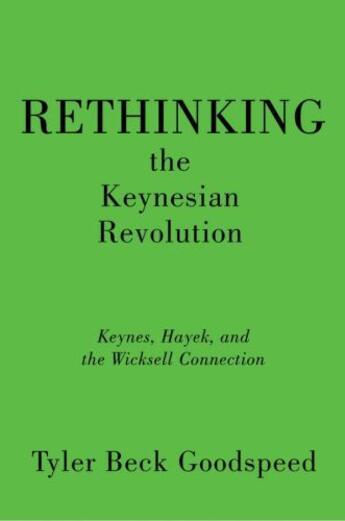Des idées de lecture pour ce début d'année !
Passionné(e) de lecture ? Inscrivez-vous
gratuitement ou connectez-vous pour rejoindre la
communauté et bénéficier de toutes les fonctionnalités du site !

While standard accounts of the 1930s debates surrounding economic thought pit John Maynard Keynes against Friedrich von Hayek in a clash of ideology, this reflexive dichotomy is in many respects superficial. It is the argument of this book that both Keynes and Hayek developed their respective theories of the business cycle within the tradition of Swedish economist Knut Wicksell, and that this shared genealogy manifested itself in significant theoretical affinities between the two supposed antagonists. The salient features of Wicksell's work, namely the importance of money, the role of uncertainty, coordination failures, and the element of time in capital accumulation, all motivated the Keynesian and Hayekian theories of economic fluctuations. They also contributed to a fundamental convergence between the two economists during the 1930s. This shared, "Wicksellian" vision of economic problems points to a very different research agenda from that of the Walrasian-style, general equilibrium analysis that has dominated postwar macroeconomics.
This book will appeal to economists interested in historical perspective of their discipline, as well as historians of economic thought. The author not only deconstructs some of the historical misconceptions of the Keynes versus Hayek debate, but also suggests how the insights uncovered can inform and instruct modern theory. While much of the analysis is technical, it does not assume previous knowledge of 1930s economic theory, and should be accessible to academics and graduate students with general economics training.
Il n'y a pas encore de discussion sur ce livre
Soyez le premier à en lancer une !

Des idées de lecture pour ce début d'année !

Si certaines sont impressionnantes et effrayantes, d'autres sont drôles et rassurantes !

A gagner : la BD jeunesse adaptée du classique de Mary Shelley !

Caraïbes, 1492. "Ce sont ceux qui ont posé le pied sur ces terres qui ont amené la barbarie, la torture, la cruauté, la destruction des lieux, la mort..."